EXCLUSIVE: Johnny Herbert On Max Verstappen Dominance, Sprint Races, And Extreme Qatar Conditions

In an exclusive interview with Sports Illustrated, former F1 driver Johnny Herbert examines the era of Max Verstappen, shedding light on the Dutch driver's astounding dominance and pinpointing the attributes that make him a racing sensation. With the sport undergoing significant changes, including the introduction of the sprint race format, which recently saw the championship being sealed on a Saturday, Herbert also discusses the changes to the sport as well as the testing race conditions in Qatar and the demands it places on drivers.
The British racer, with a career spanning over a decade in the premier class, showcased his mettle with three Grand Prix victories and drives with elite teams such as Benetton, Lotus and Sauber. Herbert has seen the world of Formula 1 evolve over the years whilst he was racing between 1989 and 2000 before going on to remain in the sport reporting for Sky Sports F1, and now with his podcast alongside fellow British racing driver Billy Monger, Lift The Lid.
Thank you to Lucky Block for setting up the interview.
Listen To The Latest Driven Mad Podcast Episode
Lydia Mee: You mentioned in a recent Instagram video that Max Verstappen has all the skills he needs to, if something goes wrong, make his way back up the pack. What do you think it is about his personality, about his driving style, about the way he was trained that has allowed him to do this?
Johnny Herbert: "I think it’s like all top sportsmen if you’re talking of Tiger Woods or [Rafael] Nadal or [Roger] Federer, Lewis Hamilton, Ayrton Senna, the list goes on, is they just have that natural ability, for one. So that natural ability makes it easier and by easier I mean, they don’t have to think about it because it’s so natural they just know where to put the car without thinking where they need to put the car, they just put it there automatically. And Max [Verstappen] is just one of those rare ones that is able to do it.
"He’s got the aggressive style that comes with it and there was always a thing, I remember going back to Ayrton Senna, many people used to gasp when they saw Ayrton Senna’s helmet in their mirrors and Max has generated a similar thing that when it’s Max behind you, there is sort of a little bit of attention has to be paid for the overtake that you know is going to be coming your way.
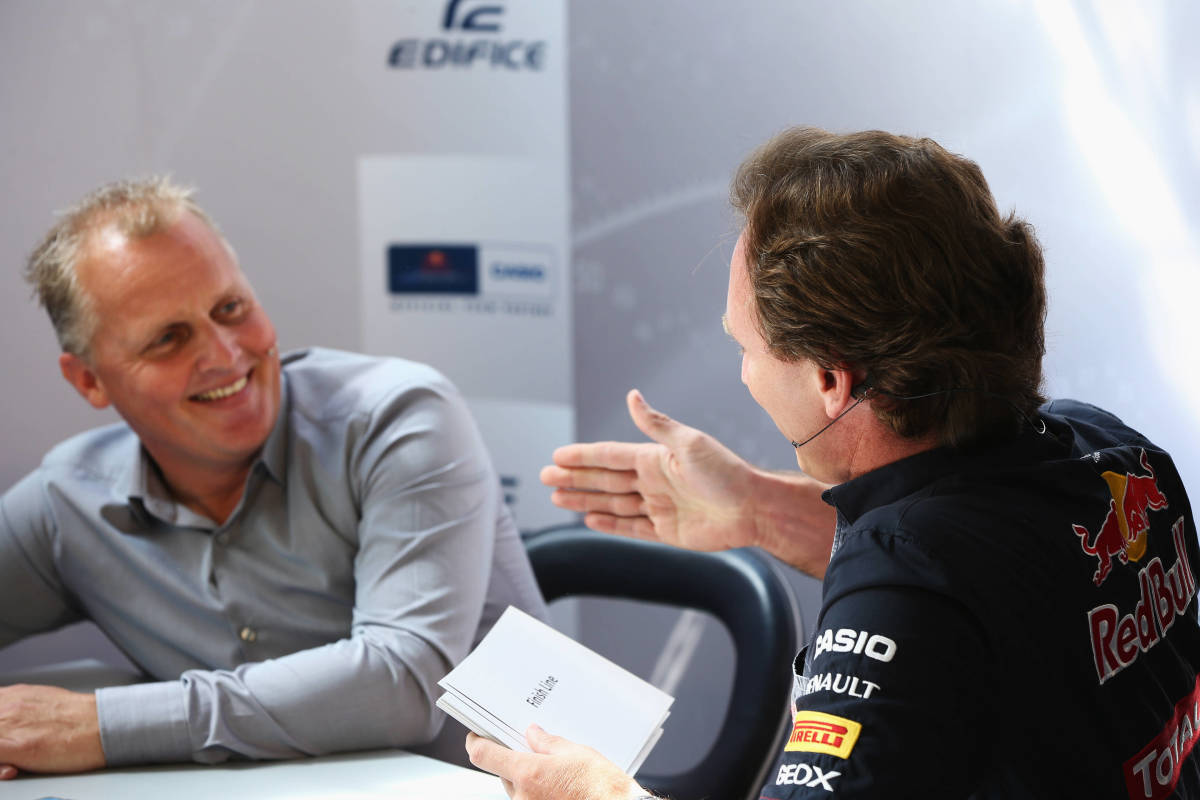
"But that’s part and parcel of what racing is all about. It’s the mind games that come into play at the same time, that’s something he is very, very strong on. I always use the word intimidation and intimidation is a part of racing, it’s a bit of elbows out, a bit of squeezing. I know with modern racing, there seems to be a lot of radio communication - ‘Oh he’s pushed me off the circuit’.
"There was something I was reading the other day, it was James Hunt when he was commentating with Murray Walker on the BBC and it was a race with Nigel Mansell and he said that Nigel should have backed out of it because he had lost the corner and that is an element of what we have lost because now there doesn’t seem to be this backing out. It’s all about rules - ‘Well, I’m slightly ahead so it’s my corner' or 'I’m on the inside so I think I have enough up the inside’. My logic is, if you have a car on the inside left or right, you can’t turn right. Just because you’re ahead slightly, it’s this thing of, 'Well that’s my corner', no it’s not because that car is still there but that doesn’t seem to come into play.
"Max does have that ability to make some of those moves, like we have seen with Lewis [Hamilton], Senna, and Mansell etc. And he’s still getting better, we still haven’t seen the very best of Max yet, which is quite scary for the others, not scary for me because I’m not there anymore so I’m quite happy.
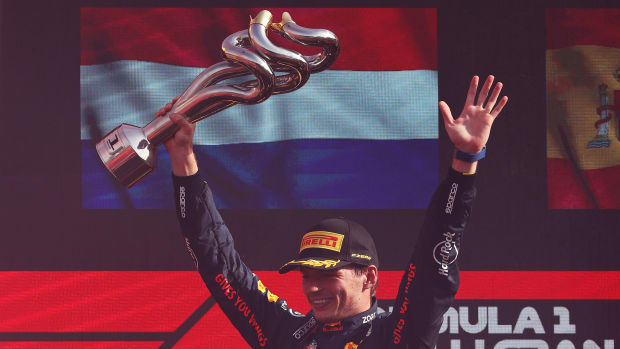
"But I thoroughly enjoy what I see. I was a little bit critical when he kept having his coming togethers with Lewis, for example, and that’s one part of it where I’m like, 'Just do it pure. You’re so, so good at what you do, just do it in a pure, clean way and just show us why you are the best’. He does that, but he has that slightly aggressive style but it actually makes it entertaining as well and he won’t stop doing it, which is great and he shouldn’t stop doing it because I think we all love what he does.
"You’re going to get criticised for certain things, but he has grown into this very, very confident young man and that is where it is just so interesting for people, I think, to be able to enjoy what he is doing at the moment, unfortunately in a dominant way because no one else is actually able to compete. They’ve started to recently but for the majority of the year it hasn’t really happened that way has it."
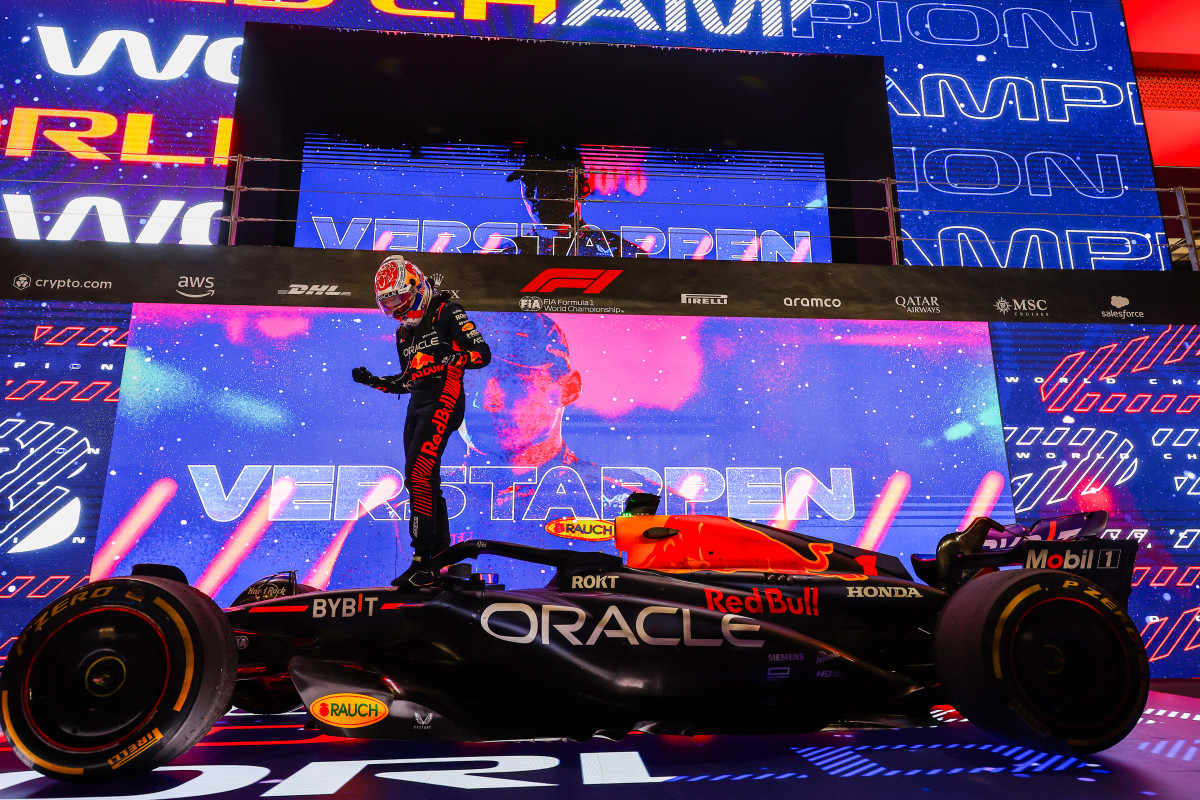
LM: This year, there’s a new format to the sprint weekend. Do you think the new format has been successful and how did you feel about a championship being won on a Saturday?
JH: "I personally like the sprint format because I think it adds something slightly different. Not all the sprint races are fantastic, but nor are the Formula One Grand Prix races on a Sunday either. We’ve seen some good ones come our way, I think Qatar was a good one because of the slight mix up with the pack and the McLaren’s doing so well which is wonderful to see.
"Now one problem I have with the Sprint is that the Formula One Grand Prix race is on the Sunday, but you win a Formula One race on the Saturday and it’s not classed as a Grand Prix win but it’s a Grand Prix weekend so why isn’t it classed as a race win? It’s a sprint win, but it’s a Formula One Grand Prix Sprint win. So, that’s one side I always get very annoyed with.
"I remember George [Russell] winning one in Brazil and it was like, 'well he hasn’t won a Grand Prix', but he has. Everybody is taking it that it’s a sprint race so it’s not really part of the championship. Well it is, because it all adds up to that championship.

"I suppose we’ve always got used to the championship coming down to the race on the Sunday itself. Is it a problem that it’s slightly different than it was? I don’t think it is because the world is different now, I think the enjoyment factor of what you want to see on a racetrack, either on the Grandstand or watching at home on the TV, is the entertainment factor part of it that’s got to come into play and I think it’s added to the whole season.
"I don’t have an issue that he [Max Verstappen] wins a championship on a Saturday because it doesn’t really matter. He’s won the championship because he was the best during that season. It’s nice for him actually going into the Sunday race as that world champion but that’s a personal thing for him I suppose.
"But I personally don’t have an issue with the sprint format. I know they have tinkered with it, I think there is some tinkering that can still happen with that format, but I think overall I like it.
"I know the teams don’t like it because there is a slight risk factor in that race itself because the main race is on the Sunday. Well, I think there is a risk when you do a Friday practice, a Saturday morning practice, a Qualifying and then a race on a Sunday. There is always a risk and it’s just part of what motorsport is all about. It’s not just Formula One, it’s Le Mans, it’s GT racing, it’s touring cars, it’s MotoGP, super bikes, whatever it may be, but the risk factor is entertainment and the entertainment part has become [even more important].
"I think the younger generation want to be entertained on the track. It hasn’t quite happened because of the domination that Max and Red Bull have done, but there have been those races like Miami where there was that wow factor because he started tenth, his teammate was on pole, he’s able to get through and win it quite easily.
"How do you get the pack together? Well, I think that is something the FIA and Formula One are trying to do, but of course, they always have the issue where the teams are trying to create something that will benefit them so that is always where you’ve got a bit of a fight but I think, overall, the last couple of years have been pretty entertaining as a whole.
"It’s difficult isn’t it because everyone goes about Michael Schumacher, ‘That was great what Michael was doing’. Well, that’s only what Max has done in some regards and won the championship very very early because that is what Michael had as a mindset - to win the championship as early as you possibly could because of the issues that might crop up. I think Max, because of Jos [Verstappen] who drove with Michael for a little bit probably has a very similar mentality that he’s put onto Max and it’s working out pretty okay."
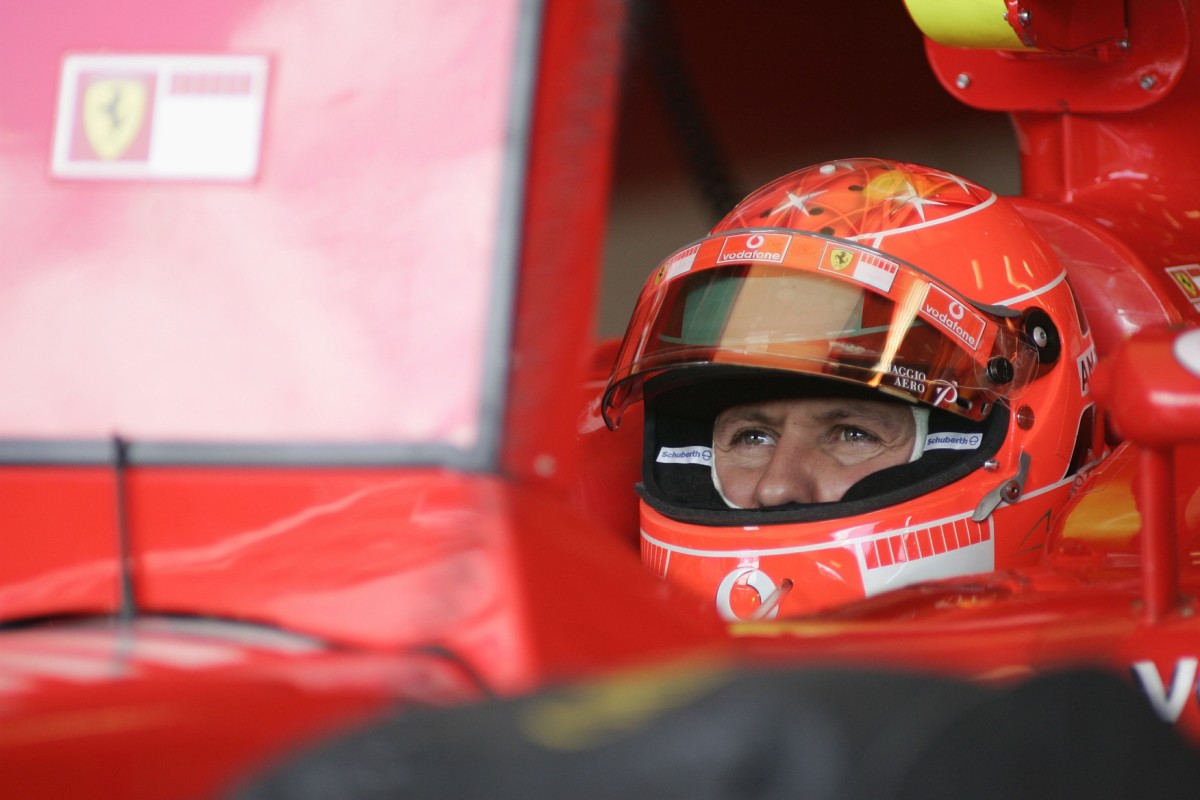
LM: Martin Brundle recently wrote on social media that conditions like Qatar are where “drivers look the heroes and athletes they are” and for fans to not buy the “weak view” that they shouldn’t race like that. From driving in a similar era of the sport to Brundle, what were your thoughts on the extreme conditions?
JH: "Well, I suppose one of the toughest races, if not the toughest race, I ever did was Malaysia ‘99 so it was the first time we had gone to Malaysia. I do remember it was pretty hot, it was damn humid. I was driving the Stewart at the time that had no power steering. And the only way I can explain what that was like is having your road car and turning off the power steering, like you're sitting there without the engine on and trying to turn the steering wheel. It was so heavy.
"But, you found a way of getting through. There was probably a little bit [of me] thinking about it looking back where I had to pace myself because of it was so so tough. You don't see someone doing the London Marathon and going 100 metre sprint pace, because he has to try and get that balance of performance.
"And I before I got to Formula One, I always thought the Formula One car has got to be the toughest, most brutal, fastest thing that I've ever, ever driven. And I hear stories sometimes that an F2 car is more physical than a Formula One car. Crickey, that's that's the wrong way round.
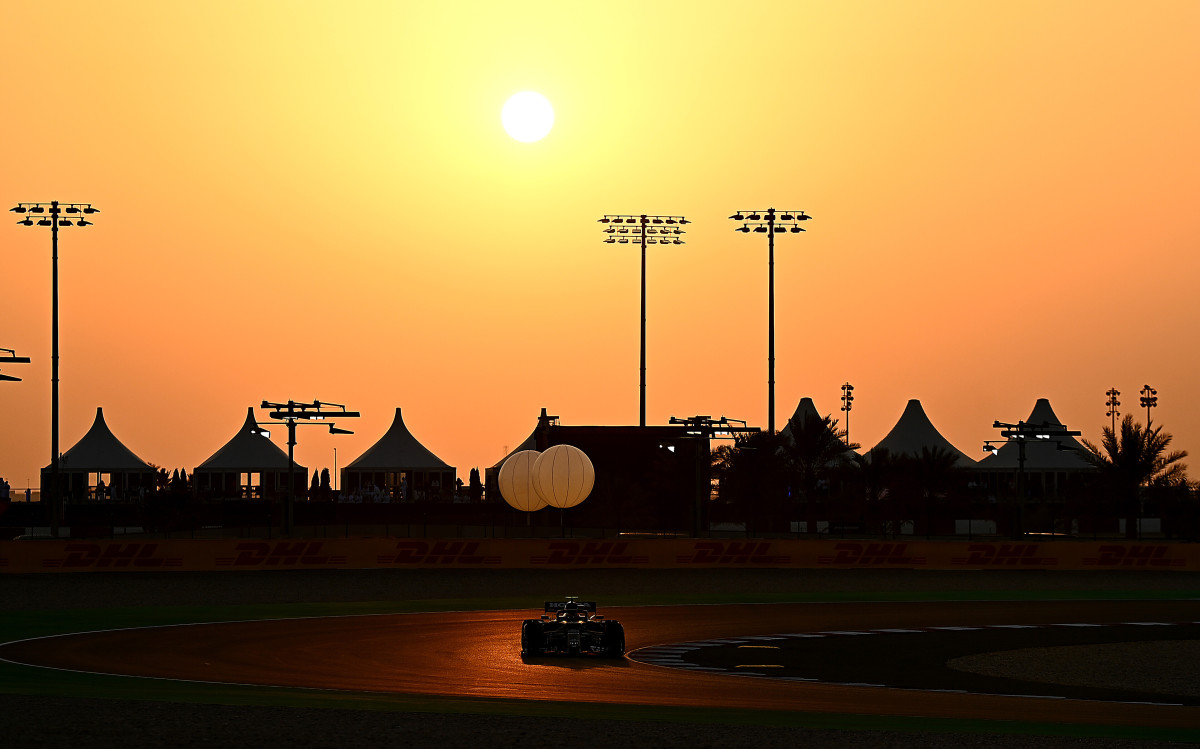
"So when I look at Qatar and I know some people had a dizzy head etc. and we had Logan Sargeant coming out of the race, but that's what Michael Schumacher did in his heyday. I know we didn't go to some of these sort of hotter, humid tracks, but it was a sprint race for him. It was a qualifying race for Michael and that changed the way everybody else had to go about their racing at the same time.
"And I always hear about the way the strategy sometimes works that they don't drive at 100% during a race because the quickest way to be is with a one stop race, for example, when they drive at maybe 60% or whatever it may be. That's not a test for the driver, and I would probably be a little bit frustrated if I was driving in a Red Bull like Max and winning like he does. He probably finds it a bit boring because he's got no one around him for most of the year.
"But, I think pacing it is part of racing. Racing is not always about sprint race. It's not always going to be in those humid, tough conditions. You often see them get out the car and it looks as if I haven't done anything.
"Even Max when he was on the podium [in Qatar] had all those little droplets on his forehead and everything else. That's what I remember. When I remember Nigel Mansell getting out the car and collapsing, even Ayrton Senna in Imola in the Toleman, he really, really suffered because of that and his training changed as well.
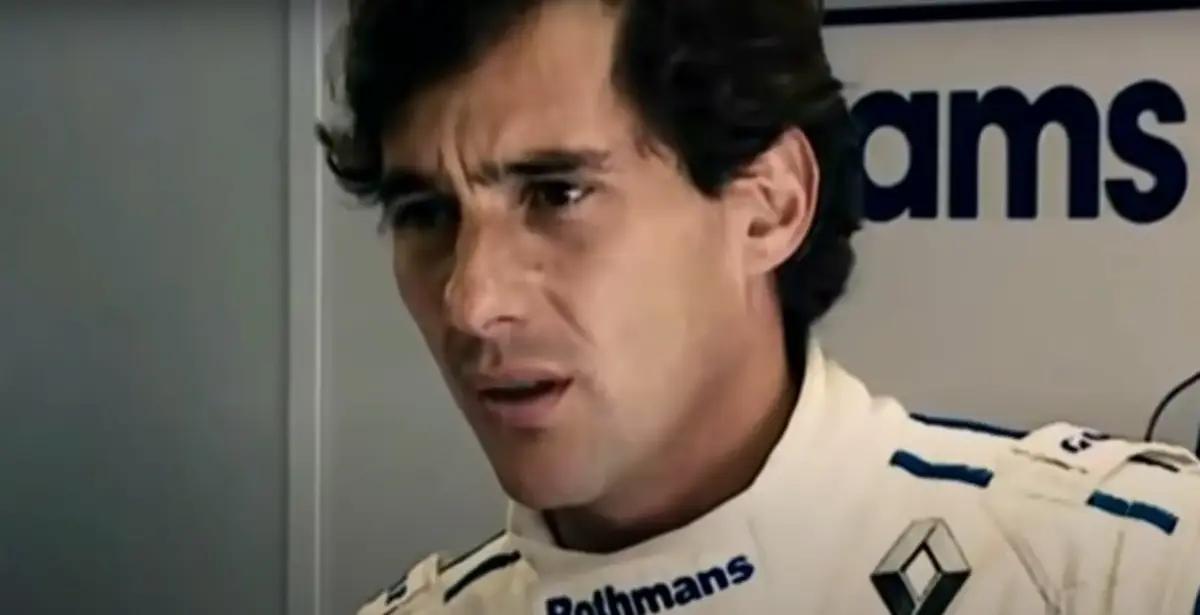
"Of course, the safety is always paramount, but I think drivers have to be tested. They have to be the heroes. I think like Martin [Brundle] said, you want to be wowed by them and go, 'Crickey, I couldn't do that. It is unbelievable what they've done'.
"Personally in Qatar, that's where I think it should be. It's strange, because I think it should be hard, it should be painful. You have to find a way, as I did back when I very first drove that Stewart, for example. The steering was so heavy and I had to change my training because I wasn't used to a steering so heavy and then a race as I said, when I got to Malaysia that was the toughest thing that I'd ever done. But I did it. I didn't go, 'Oh, well that's not good. We need to stick power steering on that or we may need to reduce the race laps.' It was part of the challenge. But my mindset was always about each race should be damn tough. And I accepted it was tough and it was never going to be easy.
"I personally watched it [Qatar] and I thought it was brilliant. That's what I want to see. I want to see these guys really, really tested. I think we did we did see that. I thought they were heroes."
